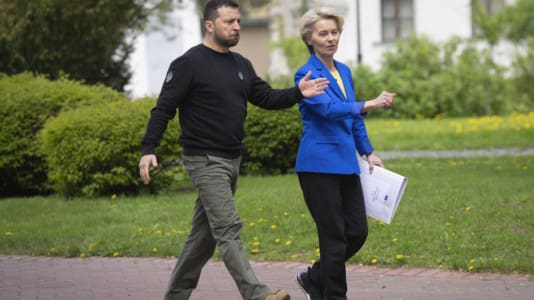The expected chancellorship of Friedrich Merz, who won the German elections, can be seen as a positive development for Israel, writes the Neokohn news portal.
Merz’s Christian Democratic bloc won 28.6 percent of the vote, while the Alternative for Germany (AfD) came in second with 20.8 percent. The center-left Social Democratic Party (SPD) led by outgoing Chancellor Olaf Scholz fell to 16.4 percent, while the Greens won 11.6 percent and the far-left Die Linke party saw a significant increase of 8.8 percent.
Merz is expected to form a coalition government with the SPD.
Merz, 69, was born in West Germany into a family of lawyers and politicians, his father having served as a judge in several trials aimed at the former Nazi leadership. Merz graduated with a law degreein 1985 and was appointed a judge shortly afterwards, but left the judiciary within a year to become a legal advisor to a chemical company.
His political career began in 1989, when he was elected to the European Parliament and then to the Bundestag in 1994.
Merz later retired and only returned to politics in 2018 after Merkel announced she would not seek another term. In 2021, he was elected party leader for a third time after the CDU’s election defeat. Since then, he has been working to help the conservatives return to power and rid the CDU of Merkel’s political legacy.
Merz and Israel
Friedrich Merz is known as a staunch supporter of Israel. After the Oct. 7 attack, he visited both southern and northern Israel and criticized outgoing Chancellor Olaf Scholz for imposing a de facto arms embargo on Israel.
Merz vowed that there would be no such restrictions under his administration and condemned the Biden administration’s policy toward Israel during the war.
Merz also announced that he would invite Prime Minister Benjamin Netanyahu to Germany, despite an arrest warrant from the International Criminal Court.
According to a statement from Netanyahu’s office in Jerusalem on Monday, the two politicians spoke by phone on Sunday evening, during which Netanyahu congratulated Merz on his election victory.
Merz supports a two-state solution but insists that the Palestinians must first recognize Israel’s right to exist. He has previously stated that “Germany’s relationship with Israel is unique – “there are no ifs or buts,” and in October 2023 he declared that Germany would not grant asylum to Palestinians because, in his words, “there are already too many anti-Semites in Germany.”
Merz has recently also told ZDF in an interview that given Europe no longer feels it can rely on the U.S. for nuclear defense, Germany and France should share their nuclear stockpiles for the U.K., Germany and France to have their own common nuclear defense capability.






